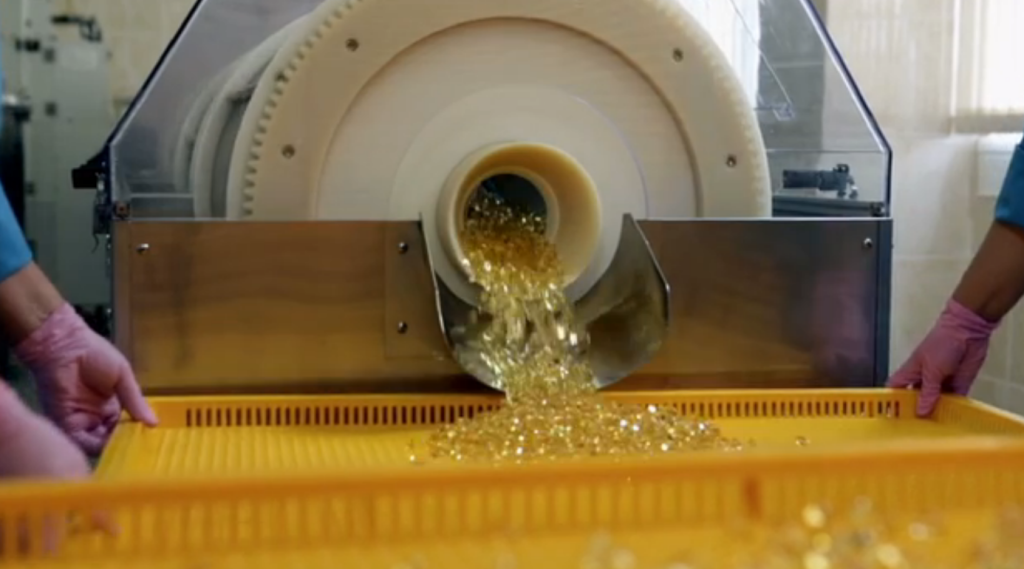7 Things You Need To Know From Frontline’s Investigation On Supplements & Safety
They look like drugs, they’re regulated by the Food and Drug Administration, but Frontline‘s new investigation found that supplements are very, very different.
Frontline, The New York Times, and the Canadian Broadcasting Corporation joined efforts to investigate the world of vitamins and supplements to take a closer look at how they’re marketed and regulated in a special called Supplements & Safety that aired Tuesday night. It raised some interesting, somewhat troubling questions about the $50-billion-plus business.
You can watch the entire episode here, but we’ve pulled out a few things we think you should be aware of before you reach for a health supplement.
1. “The FDA does not do any review of dietary supplements before they come onto the market, and I think that all consumers need to understand this,” FDA acting commissioner Stephen Ostroff, M.D., told Frontline.
2. Manufacturers of supplements do need to show that they are using good manufacturing processes, and the FDA does inspections for this, but because there is no formal registration system that is required, the FDA says they only do “inspections of the [manufacturers] we know about.”
3. Acting commissioner Ostroff says his agency sees a higher proportion of inspections that have “substantial problems” with supplements than in other categories they regulate. The acting commissioner told Frontline that this is “cause for concern” because “this isn’t about us and it isn’t about the companies, it’s about the consumers.”
4. Doctors contacted by Frontline were critical of the FDA’s system for reporting potential problems with supplements. Two doctors who attempted to report possible patient harm told Frontline that they had difficulty getting the FDA to take them seriously.
One described being disconnected from the FDA’s MedWatch hotline twice before finally getting someone on the phone. Though the doctor chose not to be interviewed on camera, Frontline says he described his interaction with the FDA this way: “[The FDA operator] was acting as if I was telling her that aliens put messages in my Cheerios.”
Another doctor spoke on camera about her colleague’s attempts to report multiple cases of liver failure.
“They told one of our liver doctors that they thought she was a prankster,” said Dr. Linda Wong, transplant surgeon at the University of Hawaii.
Dr. Pieter Cohen of the department of medicine at Harvard Medical School told Frontline that there is “no effective system to detect harm from supplements.”
5. Industry representatives stressed the safety and effectiveness of supplements, but also acknowledged that there were issues.
“There may be some supply chain issues we need to be mindful of,” said Daniel Fabricant, Ph.D., a supplements industry spokesman and former FDA regulator. When speaking about his former position with the FDA he told Frontline the agency “threw the book” at manufacturers who didn’t adhere to standards.
6. Recently, several studies used DNA testing to try to see if supplements actually contained what was listed on the bottle. The results were alarming, with one study conducted by the New York Attorney General Eric T. Schneiderman’s office finding that 79% of supplements failed their DNA test. In response to these types of studies, Frontline says GNC and Nature’s Way have begun DNA testing ingredients as a way to verify the contents of the bottle.
7. Doctors from the well-respected Children’s Hospital of Philadelphia were concerned about the quality of supplements. When they tried to obtain independent verification what was in various supplements, they ran into problems. Most manufacturers didn’t even respond to their requests, Dr. Paul Offit told Frontline. Even when they did send test results, they were often not especially flattering.
“Often, [manufacturers] would send us certificates of analysis where whats on the label wasn’t even close to what was in the bottle,” Offit said.
In the end, only 35 supplements met the hospital’s quality standards, says Frontline.
For more information, you can also check out Frontline’s Five Questions To Ask When Considering Health Supplements.
Want more consumer news? Visit our parent organization, Consumer Reports, for the latest on scams, recalls, and other consumer issues.


